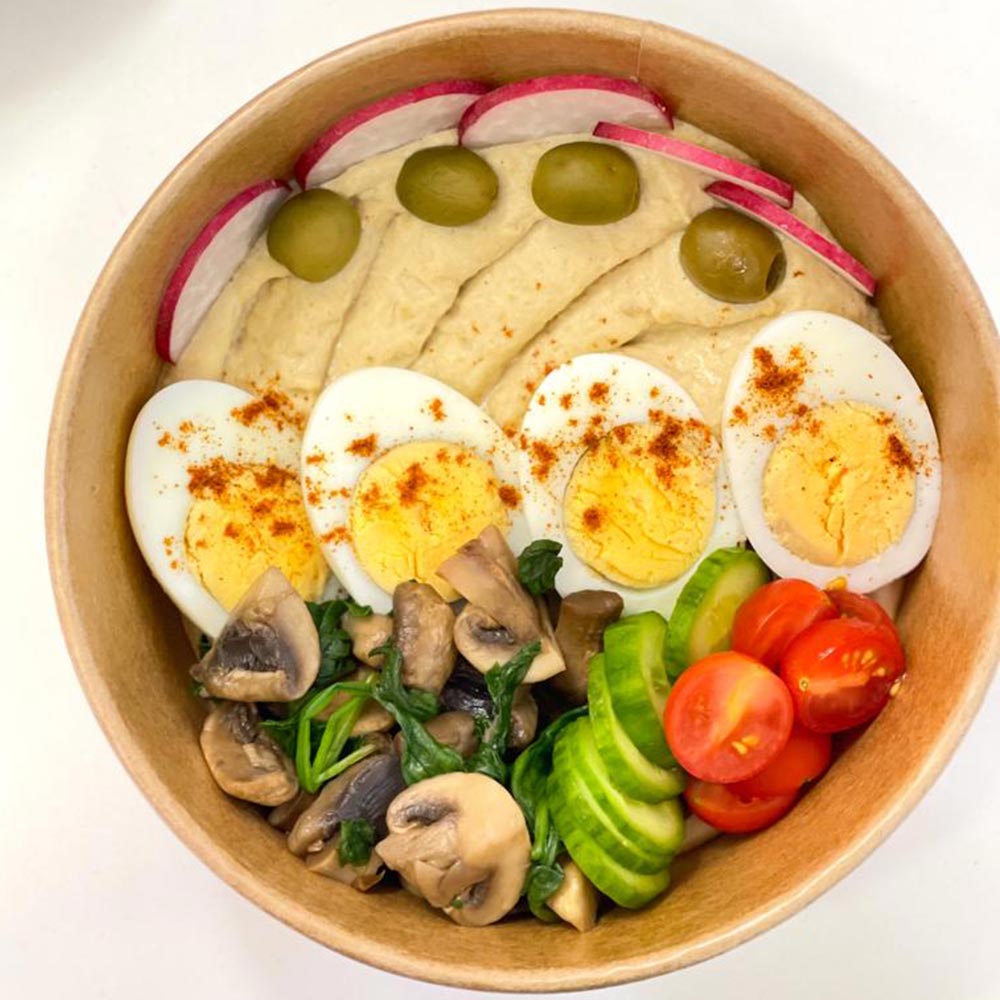This guide provides a comprehensive guide on choosing the best weight loss meal plan for individuals following a Mediterranean diet. It covers various types of meal plans, their benefits and drawbacks, and how to customize them to fit your lifestyle. The plan is suitable for those following a low-carb, keto, vegan, paleo, or Mediterranean diet. The guide also offers tips on sticking to the plan and achieving desired results. The ultimate goal is to lose weight without feeling hungry, deprived, or bored.

Why a Weight Loss Meal Plan is Essential for Your Journey
Embarking on a weight loss journey can feel overwhelming,
but having a well-designed meal plan can greatly enhance your chances of
success. Here are a few reasons why a weight loss meal plan is essential for
your journey:
1. Meal plans provide structure and guidance: When you have a
meal plan in place, you have a clear roadmap of what to eat and when to eat it.
This level of structure can help you stay on track and avoid impulsive,
unhealthy food choices.
2. Accountability and progress tracking: Following a meal plan
allows you to hold yourself accountable for your food choices. It also offers
an opportunity to track your progress and see how your choices affect your
weight loss goals.
3. Healthier food choices: A weight loss meal plan typically
includes balanced and nutritious recipes that are designed to support your
weight loss journey. By following the plan, you can make healthier food choices
and avoid succumbing to impulsive decisions that may hinder your progress.
4. Time and energy savings: Meal plans often provide pre-planned recipes and grocery lists, saving you time and energy. With a meal plan, you won't have to spend as much time planning meals or figuring out what to eat, allowing you to focus on your weight loss goals.

Understanding Different Types of Weight Loss Meal Plans
When it comes to weight loss
meal plans, there are various options to choose from. Understanding the
different types can help you find the one that aligns with your goals and
preferences. Here are some common types of weight loss meal plans:
1. Low-Carb Meal Plan
A low-carb meal plan restricts the intake of carbohydrates,
such as grains, sugar, and starchy vegetables. It focuses on consuming protein,
healthy fats, and non-starchy vegetables. This type of meal plan can help with
weight loss by reducing insulin levels and promoting fat burning.
2. Ketogenic Meal Plan
A ketogenic meal plan is a very low-carb, high-fat diet that
forces the body into a state of ketosis. In ketosis, the body converts fat into
ketones, which are used as an alternative fuel source. This type of meal plan
can be effective for weight loss, as it encourages the body to burn fat for
fuel.
3. Vegetarian Meal Plan
For those who prefer a plant-based approach, a vegetarian
meal plan can be a great option. This type of meal plan eliminates meat and
focuses on fruits, vegetables, legumes, whole grains, nuts, and seeds. It can
provide ample nutrients while supporting weight loss goals.
When choosing a weight loss meal plan, it's important to consider your dietary preferences and goals. Consulting with a healthcare professional or registered dietitian can provide personalized guidance and help you choose the plan that is best for you.

Key Factors to Consider When Choosing a Weight Loss Meal Plan
When it comes to choosing a weight loss meal plan, there are
several key factors that you should consider:
1. Lifestyle and Preferences: Take into account your
lifestyle and preferences when selecting a meal plan. Consider your schedule,
cooking abilities, and food preferences to ensure that the meal plan fits
seamlessly into your daily life.
2. Budget and Accessibility: Consider the cost and
availability of ingredients required by the meal plan. Ensure that the meal
plan is affordable and that you have easy access to the necessary ingredients.
3. Balanced Nutrition: Look for a meal plan that offers
balanced nutrition. It should include a variety of foods from all food groups
to ensure that you are getting all the necessary nutrients.
4. Flexibility and Customization: Find a meal plan that provides flexibility and room for customization. This will allow you to tailor the plan to your specific needs and preferences, making it easier to stick to in the long run.

How to Identify the Best Weight Loss Meal Plan for Your Needs
When choosing a weight loss meal plan, it's important to
consider your specific needs and goals. Here are some tips to help you identify
the best plan for you:
1. Assess your dietary needs
Take into account any food intolerances or allergies you may
have when selecting a weight loss meal plan. Ensure that the plan accommodates
your specific dietary restrictions.
2. Set realistic goals
Define your weight loss goals and make sure that the meal
plan you choose aligns with those goals. It's essential to choose a plan that
allows you to achieve sustainable weight loss without compromising your health.
3. Consider the level of support and guidance
Some weight loss meal plans offer additional support, such
as access to a community or coaching. If having support and guidance is
important to you, look for a plan that provides these resources to keep you
motivated and accountable.
4. Read reviews and testimonials
Before committing to a specific weight loss meal plan, take
the time to read reviews and testimonials from others who have followed the
plan. Their experiences can give you valuable insights into the effectiveness
and feasibility of the plan.
By considering your dietary needs, setting realistic goals, evaluating the level of support, and researching others' experiences, you can make an informed decision and choose the best weight loss meal plan for your needs.

Tips for Sticking to Your Weight Loss Meal Plan
Sticking to a weight loss meal plan can be challenging, but
with these tips, you can increase your chances of success:
1. Prepare meals and snacks in advance: By prepping your
meals and snacks ahead of time, you can avoid making unhealthy choices when
hunger strikes. Set aside time each week to plan your meals and batch-cook
nutritious options that you can easily grab and go.
2. Make your meals enjoyable: One of the keys to sticking
to any meal plan is to make your meals enjoyable. Experiment with new recipes,
try different spices and herbs, and find creative ways to add flavor to your
dishes. This way, you'll look forward to your meals, making it easier to stay
on track.
3. Stay motivated by tracking your progress: Tracking your
progress is crucial for staying motivated on your weight loss journey. Keep a
journal, use a mobile app, or find an online platform where you can log your
meals, exercise, and weight loss milestones. Celebrate small achievements along
the way to keep yourself motivated and inspired.
4. Seek support from friends, family, or online communities: Surrounding
yourself with a supportive network can make all the difference. Reach out to
friends or family members who have similar goals or join online communities
focused on weight loss. Sharing your successes, challenges, and even setbacks
can help you stay accountable and motivated throughout your journey.
Remember, sticking to your weight loss meal plan is a journey, and there may be bumps along the way. Stay committed, be patient with yourself, and remember that consistency is key to long-term success.

Achieving Long-Term Success with Your Chosen Weight Loss Meal Plan
When it comes to weight loss, it's important to focus on
long-term success rather than quick fixes. Here are some tips to help you
achieve lasting results with your chosen weight loss meal plan:
1. Focus on sustainability: Look for a meal plan that you
can maintain in the long run. Avoid crash diets or extreme restrictions that
are difficult to stick to. Choose a plan that allows for flexibility and
incorporates foods you enjoy.
2. Continuously reassess your goals: As you progress on
your weight loss journey, periodically reassess your goals. Adjust your meal
plan accordingly to ensure it aligns with your changing needs and objectives.
3. Incorporate physical activity: Alongside your meal
plan, make regular physical activity a part of your routine. Exercise not only
enhances weight loss but also improves overall well-being. Find activities you
enjoy and strive for consistency.
4. Stay committed: Consistency is key when it comes to
achieving long-term success. Stick to your chosen meal plan and resist the
temptation to revert to old habits. Stay focused on your goals and remind
yourself of the progress you're making.
Remember that achieving and maintaining weight loss is a journey, and it's important to be patient with yourself. Celebrate small achievements along the way and seek support from friends, family, or online communities to stay accountable and motivated.

Conclusion
Choosing the best weight loss meal plan can be a crucial
step in your journey towards a healthier lifestyle. By providing structure,
accountability, and guidance, a meal plan can help you make healthier food
choices, track your progress, and save valuable time and energy.
When selecting a weight loss meal plan, it's important to
understand the different types available and assess which one aligns with your
dietary preferences and goals. Consulting with a healthcare professional or
registered dietitian can provide personalized guidance and ensure that the meal
plan meets your individual needs.
Additionally, factors such as lifestyle, budget,
accessibility of ingredients, and flexibility in customization should be
considered. It's also helpful to read reviews and testimonies from others who
have followed the meal plan to gauge its effectiveness.
To stick to your weight loss meal plan, it's important to
prepare meals and snacks in advance, find ways to make your meals enjoyable,
stay motivated, and seek support from friends, family, or online communities.
By focusing on sustainability, continuously reassessing your goals,
incorporating physical activity, and staying committed, you can achieve
long-term success with your chosen meal plan.
Remember, the ultimate goal is not just quick fixes, but rather sustained weight loss and overall well-being. Consistency and dedication to your chosen meal plan will be key to achieving your weight loss goals and living a healthier and happier life.






























